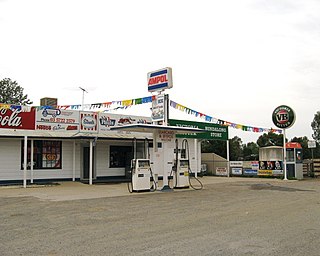Related Research Articles

A board of directors is an executive committee that jointly supervises the activities of an organization, which can be either a for-profit or a nonprofit organization such as a business, nonprofit organization, or a government agency.
A shareholder rights plan, colloquially known as a "poison pill", is a type of defensive tactic used by a corporation's board of directors against a takeover.
In business, a takeover is the purchase of one company by another. In the UK, the term refers to the acquisition of a public company whose shares are listed on a stock exchange, in contrast to the acquisition of a private company.
Asset freezing is a form of interim or interlocutory injunction which prevents a defendant to an action from dealing with or dissipating its assets so as to frustrate a potential judgment. It is widely recognised in other common law jurisdictions and such orders can be made to have world-wide effect. It is variously construed as part of a court's inherent jurisdiction to restrain breaches of its process.
Hogg v Cramphorn Ltd [1967] Ch 254 is a famous UK company law case on director liability. The Court held that corporate directors who dilute the value of the stock in order to prevent a hostile takeover are breaching their fiduciary duty to the company.

Unocal v. Mesa Petroleum Co., 493 A.2d 946 is a landmark decision of the Delaware Supreme Court on corporate defensive tactics against take-over bids.

The United Kingdom company law regulates corporations formed under the Companies Act 2006. Also governed by the Insolvency Act 1986, the UK Corporate Governance Code, European Union Directives and court cases, the company is the primary legal vehicle to organise and run business. Tracing their modern history to the late Industrial Revolution, public companies now employ more people and generate more of wealth in the United Kingdom economy than any other form of organisation. The United Kingdom was the first country to draft modern corporation statutes, where through a simple registration procedure any investors could incorporate, limit liability to their commercial creditors in the event of business insolvency, and where management was delegated to a centralised board of directors. An influential model within Europe, the Commonwealth and as an international standard setter, UK law has always given people broad freedom to design the internal company rules, so long as the mandatory minimum rights of investors under its legislation are complied with.
The Bull-dog Sauce Case is a Supreme Court of Japan case that resulted in a landmark decision regarding hostile takeover defense plans. The Court held that such plans do not necessarily violate the principle of shareholder equality under Japanese statutes, even if they result in discriminatory treatment some shareholders; however, such decisions must be made by shareholders themselves, acting in the company's best interest; they cannot be made by management to protect itself. The Bull-dog Sauce case arose from the first use of a poison pill by a Japanese company, and resulted in the Supreme Court's first ruling on the subject of takeover defenses.
Directors' duties are a series of statutory, common law and equitable obligations owed primarily by members of the board of directors to the corporation that employs them. It is a central part of corporate law and corporate governance. Directors' duties are analogous to duties owed by trustees to beneficiaries, and by agents to principals.
The following is a glossary which defines terms used in mergers, acquisitions, and takeovers of companies, whether private or public.

Bishopsgate Investment Management Ltd v Maxwell [1993] BCLC 814 is a UK company law case concerning a director's duty to act for proper purposes of the company. This case is an example of what would now be Companies Act 2006, section 171.

Howard Smith Ltd v Ampol Petroleum Ltd[1974] UKPC 3 is a leading company law case, concerning the duty of directors to act only for "proper purposes". This duty has been codified into the Companies Act 2006 section 171, and arises particularly in cases involving takeover bids.

Progress Property Co Ltd v Moorgarth Group Ltd[2010] UKSC 55 is a UK company law case concerning the circumstances by which a transaction at an undervalue would be considered an unauthorised return of capital.
The Takeover Directive2004/25/EC is an EU Directive dealing with European company law's treatment of mergers and acquisitions. It concerns the standards takeover bidders must comply with in how long a bid stays open to, who they offer to, and the information companies must give to the public about the bid. The most controversial provision, which eventually was made optional, was the requirement of the board of directors of a target company to be neutral in the bid process.
Directors' duties in the United Kingdom bind anybody who is formally appointed to the board of directors of a UK company.

Prest v Petrodel Resources Ltd[2013] UKSC 34, [2013] 2 AC 415 is a leading UK company law decision of the UK Supreme Court concerning the nature of the doctrine of piercing the corporate veil, resulting trusts and equitable proprietary remedies in the context of English family law.

Multinational Gas and Petrochemical Co v Multinational Gas and Petrochemical Services Ltd [1983] Ch 258 is a leading United Kingdom company law case relating to directors' liability. The case is the principal authority for the proposition that a company will not be able to make any claim against a director for breach of duty where the acts of the director have been ratified by the members of the company.
A stichting is a Dutch legal entity with limited liability, but no members or share capital, that exists for a specific purpose. This form of entity makes it possible to separate functions of ownership and control. Its use has been pioneered successfully in recent years as a 'poison pill' style defence tactic in hostile takeover situations by Scott V Simpson, one of Europe's leading mergers and acquisitions lawyers.

Welsh Development Agency v Export Finance Co Ltd [1992] BCLC 148 is a judicial decision of the English Court of Appeal. The decision related to a number of aspects relating to complex financing arrangement, but is most often cited for the decision in relation to recharacterisation.

Corebridge Financial is an American multinational financial services company. It provides annuities, life insurance, asset management, retirement solutions, and other services. Corebridge was formed after AIG performed a spin-off on the company via an IPO in 2022.
References
- V Brudney, 'Fiduciary Ideology in Transactions Affecting Corporate Control' (1966) 65 Michigan Law Review 259